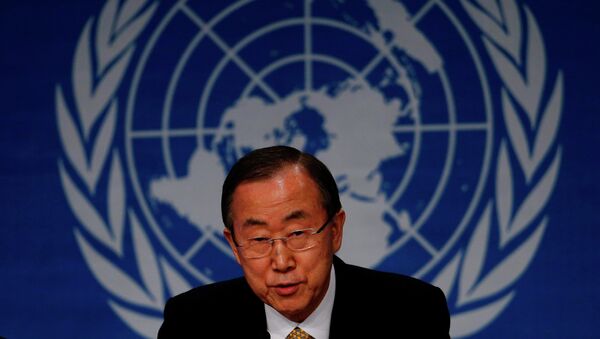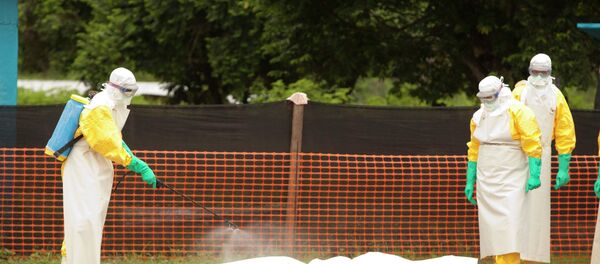"We are adapting our approach to fit the emerging picture of the crisis. Instead of one outbreak spreading relentlessly from the epicenter, we are now seeing dozens of isolated chains of transmission. The outbreak is evolving, and so has our response," Ban said in a statement.
He said the international community needs preliminary knowledge of a possible worsening of the situation and should be ready to make a rapid response.
"I intend to engage Member States in a serious effort to explore what more we can do to stay ahead of the next outbreak of disease —a test that is sure to come," Ban added.
Ban visited Liberia, Sierra Leone and Guinea last week. He also visited Mali, where the United Nations' mission on Ebola — UNMEER — is based.
The current outbreak of the Ebola virus started in Guinea in December 2013, reaching Liberia, Sierra Leone, Nigeria and Senegal in the first few months of 2014. Some Ebola cases have been reported outside of West Africa, including in the United States.
According to the most recent estimates from the World Health Organization (WHO), 7,373 people have died from the current outbreak so far.



